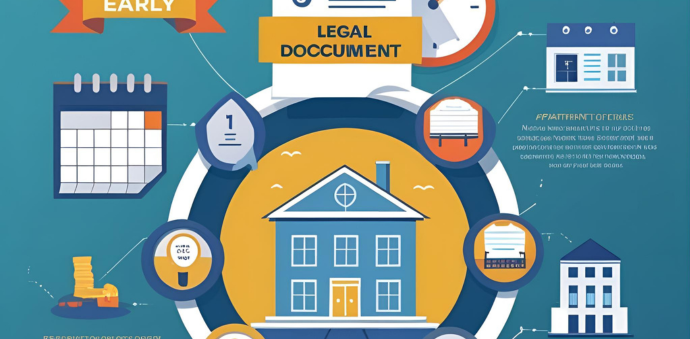
Sometimes life throws unexpected challenges your way, making it necessary to move out before your lease ends. If you’re wondering how to legally move out early without penalty, understanding your rights, lease terms, and local laws is essential to avoid costly consequences and protect your rental history.
This guide outlines key steps and options to help you break your lease responsibly and minimize penalties.
First, carefully review your lease for an early termination clause, which may allow you to end your lease by paying a specified fee or giving proper notice. Some leases require 30 to 60 days’ advance written notice or payment of a portion of remaining rent.
Next, research your state’s or city’s tenant laws. Many jurisdictions provide legal grounds to break a lease without penalty, including:
Understanding these protections lets you confidently pursue early termination when justified.
Notify your landlord in writing as soon as you know you must move out early. Explain the situation clearly, citing any legal grounds or lease clauses if applicable. Providing plenty of advance notice ideally 30 to 60 days is key.
If possible, offer to help find a replacement tenant. Many landlords will reduce penalties or waive fees if you assist in mitigating their losses by helping them rent the unit quickly.
Keep records of:
Good documentation protects your rights and strengthens your case if disputes arise.
Even when legally justified, you might still owe rent until the landlord rerents the unit or through a specified penalty fee. However, landlords are generally required to make reasonable efforts to re-rent the property and cannot charge you unfairly for lost rent.
Avoid walking away without notice or discussion; this can lead to lawsuits, loss of your security deposit, and damage to your credit and rental history.
If your landlord refuses to cooperate, unlawfully threatens eviction, or you’re unsure of your rights, consulting a tenant rights attorney is a smart move. Legal advisors can guide you through your options, help negotiate with your landlord, and ensure you break your lease safely.
Moving out early is stressful, but you don’t have to face it alone or risk costly mistakes.
Contact us today for a free consultation. We’ll help you review your lease, understand your rights, communicate effectively with your landlord, and pursue the best path to move out early without penalty.
Reach out now to protect your rights, your finances, and your peace of mind.